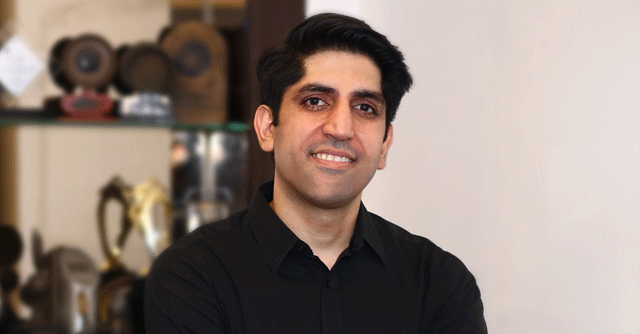
Does India have less competitive dynamics than in the US for tech start-ups?


Many young entrepreneurs who decided to come back to India leaving their lucrative careers behind in the Big Apple feel that barring initial stages of friction, start-upsin the country can grow faster as the competitive dynamics in India are far lesser than in the US. They also believe in the potential that the Indian market offers, but not denying that the technology-based businesses are still in their upcoming stage.
By Rohit Chadda
Lured by the opportunity to build a strong company in India, several young Indian entrepreneurs are giving up their ‘American Dream’ to return to the country of their origin.
Correspondingly, India is the third-largest start-up ecosystem in the world and poised to witness Year over year growth of consistent annual growth of 12–15 percent. Reportedly in 2020, India was among the top 50 innovative economies. Recently, the IMF projected an 11.5 percent growth rate for India in 2021, making it the only major world economy to register double-digit growth.
Additionally, the spread of technology and innovation has created a fertile ground for start-ups, which is why Bengaluru has grabbed the number one spot as the most dynamic city in the world. Hence, the country has the right environment for entrepreneurial growth given its unrivaled youth population and urbanization.
From a consumer viewpoint, India forms a youthful, middle-class demographic with augmented spending power and a keen interest in digital innovation. From a business perspective, this is also an attractive source of talent for the workforce. The start-up ecosystem is now shifting to more B2B models with IP-driven innovation as their mainstay. They are progressing in the areas of health-tech, robotics, media-tech, and many more.
Indian start-ups received $10.14 billion in funding in 2020, despite the Covid-19 crisis. Sectors like e-commerce, fintech, and Edutech were the biggest gainers. This can be credited to the work done by the Indian government agencies such as Invest India, Startup India, AgNii, and others to enhance investor confidence and entrepreneurial culture.

Notably, directly acquainted with the global ecosystems and unlike their more service-based counterparts from the previous generation, there is a trend of more start-ups building unique products and solutions. Unsurprising because these seasoned entrepreneurs worked in large multinationals in the US before returning to India.
Therefore, equipped with out-of-the-box ideas and a sound bank balance, the foreign-returned entrepreneurs are budding from India for the world. Tech entrepreneurs find it viable to develop low-cost but high-standard software in India. For instance, India-based tech consulting firms reveal that to make niche software in the US may cost them 100 to 200 USD, whereas, in India, it could cost anything between 15 and 35 USD.
Currently, make in India and sell globally defines the popular business proposition.The Indian businesses develop a product, have it patented (for increased value), and successfully sell it in the US.
Another advantage is in the garb of India’s population, which is four times that of the US; its middle class is said to have grown bigger than the total US population. Compared with the US, the Internet is cheaper, and the usage of mobile has increased manifold. Hence, it is half the battle won for start-ups because their consumer reach has increased.
Regarding technology, tech-pundits believe that India is an applied tech hub instead of a manufacturing and creative hub. The US is more about creating newer technology and thought processes. Lately, however, this has started happening in India too.
India offers infrastructure facilities and low costs, thereby offering a significantly conducive environment for start-ups. Practically, there is a huge mismatch with regards to infrastructure maintenance, approvals, licensing work, etc. as they might require a good amount of time investment. Whereas, the US has a level of efficiency in terms of formalities which help businesses grow efficiently and faster.It is here that one becomes aware of the lingering doubts in the minds of those who believe that political connections are at the root of all successful start-ups. The counter argumentpresented is that the political angle can provide funding but the business needs to be efficient. Otherwise, a subsequent round of funding that usually comes from overseas will dry up.
Undoubtedly, there are challenges. During the Covid-19 phase in India, durable goods start-ups suffered, difficulties in increasing the sales of developed software products, lack of continuous funding, reduced billing, and clients halting business mid-way to name a few. Unlike India, the US clients, except for the layoffs and suspending new business initiatives, continued with the people and the process they had engaged.
As such these challenges are not insurmountable. With an abundance of the cheap and skilled labor force available, it is advisable to establish a business here in India. Even foreign businesses are arriving on the Indian shores to partake in its growth story. A recent example is the US-based electric vehicle maker Tesla set up an office in India.
Consequently, the future holds immense promise. The country boasts of huge local consumption and so, domestic start-ups will grow exponentially. Reportedly, by 2025, the number of start-ups in India is expected to cross 100 K, creating more than 3.25 Mn jobs in the process. The total funding in Indian start-ups is likely to increase to over $150 Bn and with the total value creation exceeding $500 Bn.
Finally, these are exciting times in India. Intending to become a $ 5 trillion economy, the latest push on building technological infrastructure and the ease of business is further stimulating the growth of the ecosystem. Government backing, foreign and domestic investments can catapult India as the next global tech hub.
-The author is CEO-Digital Publishing, Zee Group

Brand Solutions is a marketing initiative for sponsored posts. No TechCircle journalist was involved in the creation of this content
